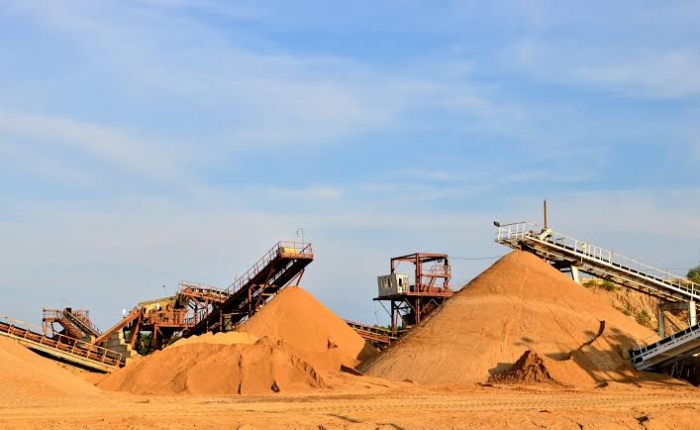The world is running out of sand.
About 50 billion tons of sand and gravel are extracted annually, most of which is used for construction activities. This is a problem for two reasons. First of all, it’s not sustainable. Secondly, if we continue to extract sand at this rate, it will end up causing irreversible damage to the environment.
For instance, loss of sand from oceans, rivers, and beaches can lead to excessive flooding and degradation of marine ecosystems. It threatens coastal communities, and infrastructure. Plus, sand mining near aquifers can lower water tables, affecting water availability for humans, land animals, and agriculture.
“The issue of sand comes as a surprise to many, but it shouldn’t. We cannot extract 50 billion tonnes per year of any material without leading to massive impacts on the planet and thus on people’s lives.” Pascal Peduzzi, a researcher at the United Nations Environment Programme (UNEP), toldBBC.
A new study suggests China may have found a solution to the sand mining problem. The Chinese have been using artificial sand made by crushing rocks and leftover materials from mining for many of their construction projects. This simple technique has allowed them to drastically reduce their dependence on natural sand without slowing down their massive construction projects.
China’s shift from natural to artificial sand
In the last 40 years, China turned itself from a developing country to an economic superpower, and rapid urbanization has played a key role in its development. However, the fast-paced urbanization has caused massive depletion of its natural construction material reserves — including sand.
For instance, some reports suggest that over 40 percent of cultivable land in China is degraded because of uncontrolled sand mining, pollution, and erosion. This problem was first realized in 2010 when the country witnessed the dwindling of many of its natural sand reserves. It caused a sharp rise in the prices of sand used for construction purposes.
In the following years, the Chinese government also began to take action on illegal sand mining activities to prevent the exploitation of sand reserves. This further increased the price of sand and forced the construction industry to look for budget-friendly alternatives, and this is when some of them adopted manufactured sand (also called, artificial sand).
This technique involved using machines to crush and sift rocks or mine tailings (mining waste) into smaller particles with properties similar to that of natural sand. Since this process doesn’t involve mining or extracting sand from rivers and beaches, it is both cheaper and more eco-friendly.
Rise of manufactured sand in China
The study authors developed a monitoring system that allowed them to examine the sand use pattern in China from 1995 to 2020. Their analysis revealed many surprising facts. For example, the Chinese have been producing artificial sand since the early 2000s, but it became popular in 2010.
2010 was also the year when the supply of natural sand in China reached its highest level. However, the next year’s supply of manufactured sand overtook that of natural sand, becoming the primary sand type used for construction activities.
In the following years, production of artificial sand continued to increase by 13 percent annually. In 2020, the use of natural sand reduced to the extent that it accounted for only 21 percent of the total sand supply, witnessing an 80 percent downfall, compared to 2010.
“China’s overall sand supply surged by approximately 400% over the study period, yet the proportion of natural sand dropped from ≈80% to ≈21% due to the increasing use of manufactured sand,” the study authors note.
“The percentage of manufactured sand in the Chinese market could now be close to 90 percent. The shift from natural sand to manufactured sand is a miracle for a country that has completed such massive infrastructure construction,” Song Shaomin, a professor at Beijing University of Civil Engineering and Architecture, toldSCMP.
We don’t know how accurate these claims are, but the use of artificial sand in China proves that it’s a promising solution for reducing dependence on natural sand. Other countries can also consider this approach to protect their natural sand reserves from degradation.
However, further research is required to understand whether artificial sand production can work in other geographies. Also, it’s important to know its limitations and effects on the environment as it relies on waste products from mining activities.
This study is published in the journal Nature Geoscience.
ZME Science


































































